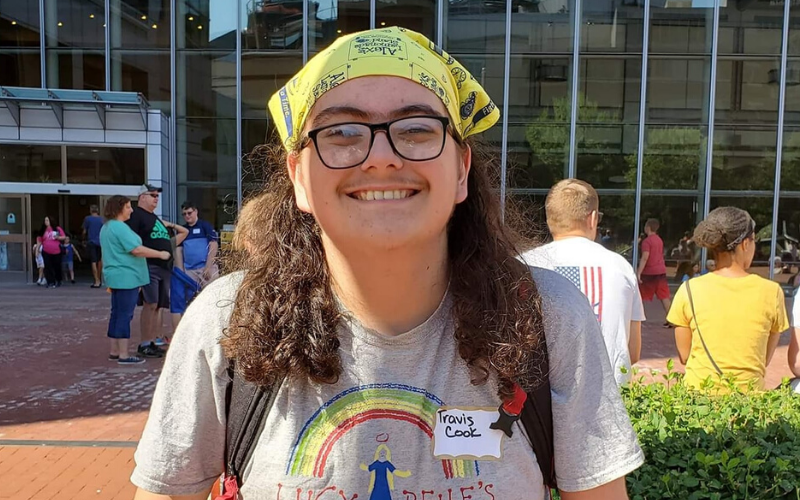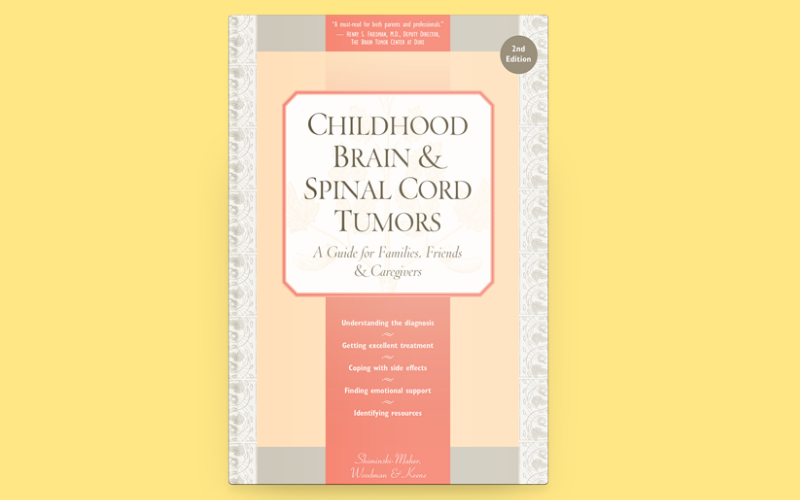By: Elisa Heisman
When Beth Cook’s then 8-year-old son Travis was diagnosed with a brain tumor, she did not know what to say.
“I did not know what to tell Travis, but I had to tell him,” recalls Beth. “I told him there was something in his head that didn't belong there, but it was going to be ok because he had the best doctors in the world taking care of him. I didn't know if that was the right thing to say, but it comforted him. I was a lot less confident than I showed.”
The story is similar for most childhood cancer families — the diagnosis is a shock, and parents are left struggling to find the right words to tell their child, and later, their siblings, friends and classmates.
ALSF is committed to providing families facing a childhood cancer diagnosis with the best resources available. In honor of Brain Tumor Awareness Month, the Childhood Brain & Spinal Cord Tumors book is 20% off. This guide is geared toward families, friends and caregivers and will help you talk to children about a cancer diagnosis, understand treatment options and communicate with your medical team.
Inside this book, you will find answers to questions like:
• How do I talk to my child and their siblings about this diagnosis?
• What is the treatment protocol for this type of cancer?
• What side effects should I expect from these treatments?
• How can I be the best advocate for my child?
• And so much more!
This guide is also chock-full of stories and practical advice from parents and kids.
Here are some examples of that advice:
On Your Child’s Mental Health
“My daughter went to a psychotherapist for the years of treatment. It provided a safe haven for frank discussions of what was happening and also provided a place to practice social skills – which were a big problem for her at school.”
On Parent Support Groups
“I felt like I was always putting up a front for my family and friends. This was draining and counterproductive. With the other parents though, I felt free to laugh as well as cry.”
On Talking to Your Medical Team
“We found that sitting down and talking things over with the nurses helped immensely. They were familiar with each drug and its side effects. They always seemed to have the time to give encouragement, a smile, or a hug.”
This fantastic resource that parents have relied on is available at a discount for both print and electronic versions until June 15, 2020. Purchase a paperback copy from the ALSF website or your favorite online book retailer.
And if you need help talking to your child’s teachers, classmates and school officials, don’t forget about our wonderful ALSF School Guide!



